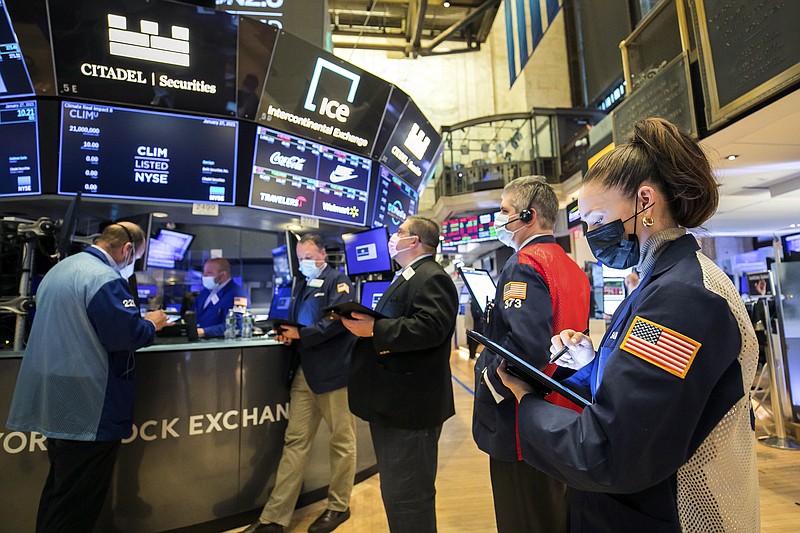Technology companies led a broad sell-off in stocks Wednesday, knocking more than 600 points off the Dow Jones Industrial Average and handing the market its worst day in nearly three months.
The S&P 500 fell 2.6 percent, its biggest single- day drop since it lost 3.5 percent on Oct. 28. It had set a record high just two days earlier. The Dow and tech-heavy Nasdaq composite also fell more than 2 percent. The sell-off left the S&P 500 and Dow in the red for the year.
A measure of fear in the U.S. stock market, the VIX index, surged more than 60 percent. Treasury yields edged lower, a sign of caution in the market.
Facebook, Netflix and Google’s parent company led the pullback, which started early in the day as investors sized up the latest batch of company earnings reports. The market’s skid accelerated toward the end of the day, following the release of a largely expected interest rate policy and economic update by the Federal Reserve.
The sharp selling is a shift from the market’s recent record-setting run and comes as investors focus on the outlook for the economy and corporate profits amid a still-raging coronavirus pandemic.
Expectations on Wall Street built up in recent weeks for a big economic financial boost from the Biden administration, which has proposed a $1.9 trillion stimulus plan. But Democrats’ slim majority in the Senate has raised doubts about how soon more aid might arrive and whether such a package will end up being scaled back by spending-wary lawmakers.
“The reality is setting in that the package won’t be quite as big and maybe a little bit delayed,” said Sal Bruno, chief investment officer at IndexIQ.
The S&P 500 fell 98.85 points to 3,750.77. The Dow lost 633.87 points, or 2 percent, to 30,303.17. The Nasdaq slid 355.47 points, or 2.6 percent, to 13,270.60. The Russell 2000 index of smaller companies gave up 41.16 points, or 1.9 percent, to 2,108.70.
The Federal Reserve announced Wednesday that it would keep its low interest rate policies in place even well after the economy has sustained a recovery from the viral pandemic. In a statement after its latest policy meeting, Fed officials said they are keeping their benchmark short-term rate pegged near zero and said they would keep buying Treasury and mortgage bonds to restrain longer-term borrowing rates and support the economy.
Meanwhile, investors continued to focus on the profit prospects for Corporate America. This is the busiest week so far of quarterly earnings reporting season for U.S. companies. More than 100 companies in the S&P 500 are scheduled to tell investors this week how they fared during the last three months of 2020.
As a whole, analysts expect S&P 500 companies to say their fourth-quarter profit fell 5 percent from a year earlier. That’s a milder drop than the 9.4 percent they were forecasting earlier this month, according to FactSet.

